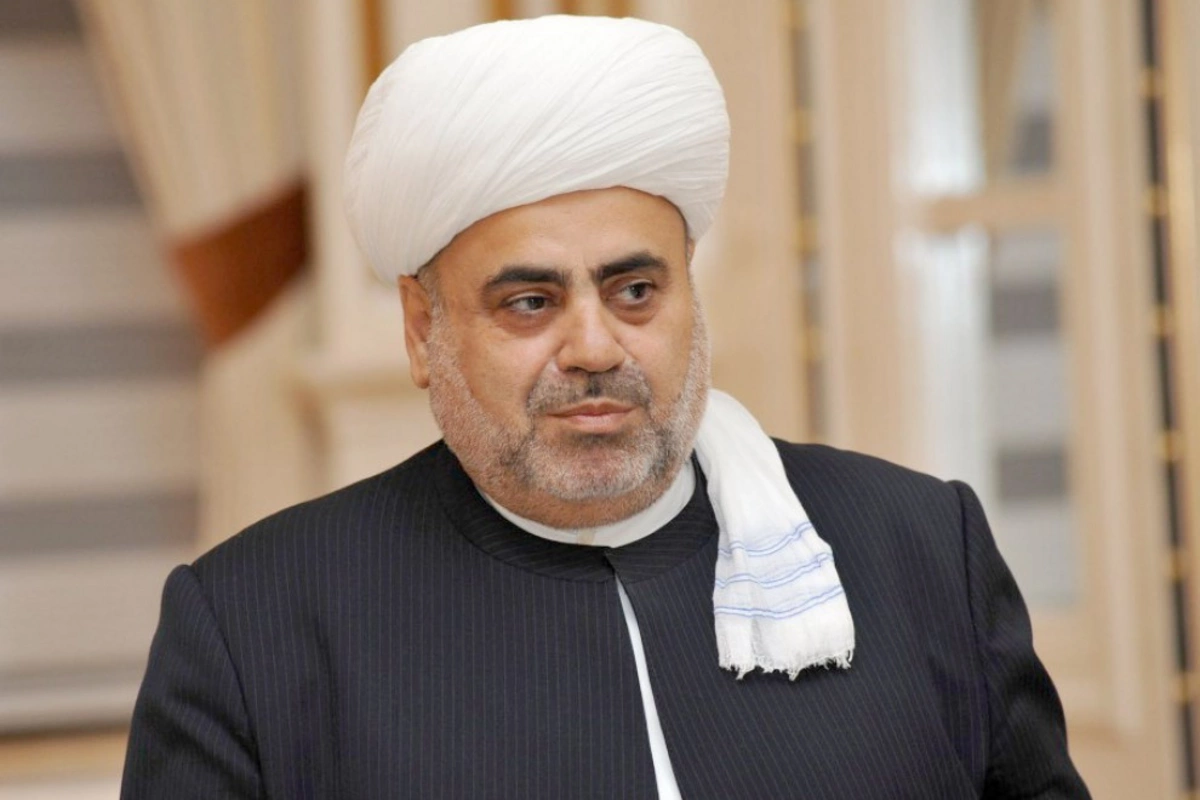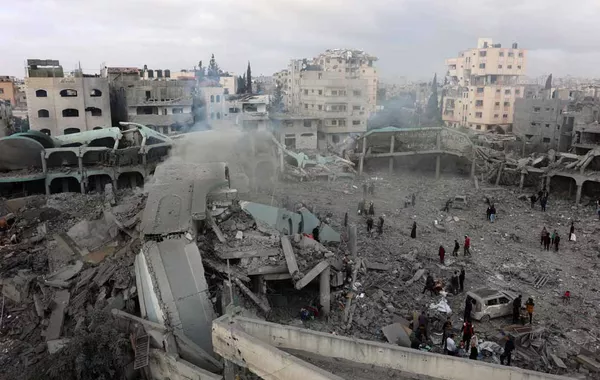
On the occasion of Eid al-Adha, Sheikh-ul-Islam of the Muslims of the Caucasus, Allahshukur Pashazadeh, sent the message, "I pray to Allah Almighty to protect the Ummah and all of humankind, to save the world from the disasters of war, terror and hatred, and to bless our world with peace and tranquillity. May Allah bless you all."
Image: aztv.az
Allahshukur Pashazadeh serves as a spiritual leader for Muslim communities in his native Azerbaijan, as well as in Georgia and several of the Russian Federation’s North Caucasus republics. He started his Islamic studies in 1968 at the Mir-Arab Madrasa in Bukhara, Uzbekistan which was then the only Islamic educational body in the then Soviet Union. He spent seven years in Uzbekistan, and came to see the country as his second home, making many friends – some of whom would similarly go on to become religious leaders in post-Soviet Russia and Central Asia.
These relationships played an important part in preparing Pashazadeh for his future role as a spiritual, national and international figurehead.
In 1978 he was appointed as the akhund (imam) of Baku’s Taza Pir Mosque becoming the Deputy Chair of the Caucasus Muslims Board (CMB), a body which provides guidance for Muslims in the region. Barely two years later he rose to the position of Sheikh ul-Islam, the Caucasus’ most senior Islamic scholar and jurist, a role he’s now held for over four decades.
Sheikh ul-Islam remains his official title to this day, but he is often referred to as “Grand Mufti” by his followers out of respect for his leadership.
While Azerbaijani Muslims – who make up the majority of the population – are largely Shia, the country’s Islamic authorities accommodate Sunni citizens as well, and it is not uncommon for members of the two sects to pray side by side in mosques, and come together for other rituals and ceremonies.
Pashazadeh himself has actively promoted this kind of unity between Sunnis and Shias in the way he leads the CMB as well.
“It is gratifying that over the history of Azerbaijan, there has never been any conflict based on denomination or religious grounds,” he tells the Caspian Post, “simply because that kind of discrimination has never been accepted here by our people.”
“It’s the same with the Caucasus Muslims Board – since it was established its policy has been to have a shared interdenominational management system. We have built on this existing tradition, and created a common religious judgement body for both Sunnis and Shias called the Council of Qadis (Islamic judges). All regions of Azerbaijan are represented in this Council, and its fatwas (legal Islamic pronouncements) are accepted by both Shias and Sunnis of our country.
“At the same time, we, the Muslims, live together with our compatriots of other religious identities in an atmosphere of fraternal friendship and inter-religious harmony.”
Sheikh ul-Islam Pashazadeh also represents Azerbaijan and the wider Caucasus internationally. “I enjoy friendly relations and practical cooperation with the most influential Muslim and non-Muslim religious leaders of our times,” he explains.
These leaders range widely from Sheikh Ahmed Al-Tayyib, the Grand Imam of the world leading Cairo-based Islamic sciences institution, Al-Azhar Al-Shareef, and Hissein Brahim Taha the Chad-born Secretary General of the Organization of Islamic Cooperation, to Pope Francis, leader of the Roman Catholic Church and Ronald Rasband, a high-ranking member of the Mormon Church.
He has participated in a host of international policy bodies, such as the G20 Interfaith Forum, the Council of Europe, the UN Alliance of Civilizations, and the Organization of Turkic States.
He also serves as Secretary General of the Baku International Center for Interreligious and Inter-Civilizational Cooperation, which strives to promote trust, partnership and dialogue between different faith communities, and address major global problems such as armed conflicts, refugee crises and xenophobia.
“What is most demanded today is joint efforts of religious and political figures on different international platforms for the sake of peace and co-existence… I hope that Allah will bless these efforts to strengthen the environment of mutual understanding.”
As it says in the Quran, Allah “divided you into nations and tribes in order to let you know each other."
Share on social media
